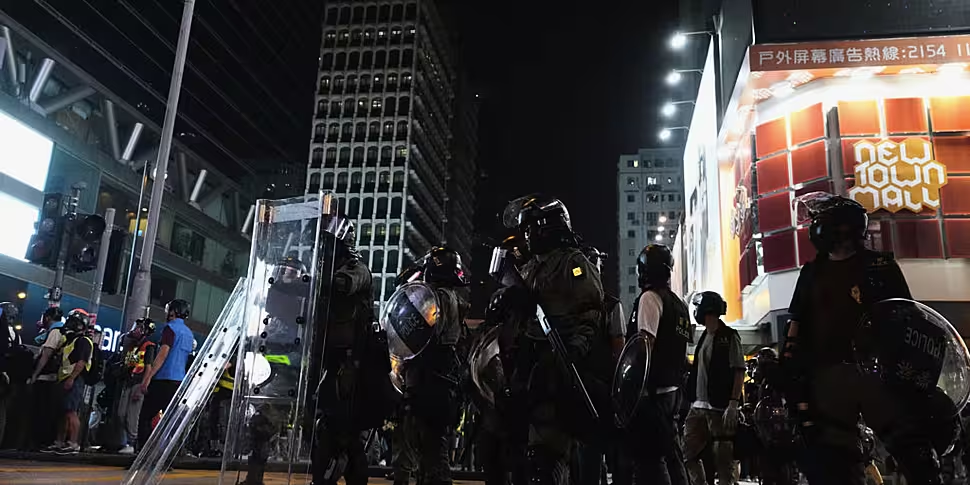Hong Kong's financial secretary has warned of a recession in the territory as months-long pro-democracy protests continue.
Paul Chan has said the blow to Hong Kong's economy has been "comprehensive".
His comments come as the city experienced a 21st weekend of major protests.
In a blog post on Sunday, Mr Chan said figures to be published later this week will show the region has entered a "technical recession" - meaning two back-to-back quarters of negative year-on-year growth.
He added: "The negative growth rate has significantly expanded. What's more, the current situation has not yet improved.
"It seems that it is extremely difficult to achieve the forecast of 0 to 1% of the annual economic growth. It is impossible to rule out the possibility that the economy will experience negative growth throughout the year."
He pointed out that exports fell by 6.4% in the third quarter of the year, while the decline in tourist numbers had become an "emergency".
He suggested: "The situation has been even worse since October, and the decline in the first half of the month has expanded to nearly 50%.
"The average occupancy rate of hotel rooms in August fell by 28 percentage points year-on-year to 66%."
He also pointed to shops having to close for either half days or full days during demonstrations.
Mr Chan urged "rational dialogue" to resolve the tensions, adding: "[We] must always work together to stop the violence, stop the destruction of traffic infrastructure and specific target shops, banks and institutions, [and] stop attacks."
The protests began in Hong Kong during the summer over a controversial extradition bill that would have allowed authorities to send suspects to mainland China.
Despite the bill having now been withdrawn, the movement soon morphed into larger pro-democracy protests - calling for free elections and an inquiry into the police handling of the demonstrations.
This weekend saw the 21st consecutive weekend of protests, with fresh clashes between police and some demonstrators.
Tear gas, water cannons and petrol bombs have been regularly used on the city's streets, while subway stations have frequently closed during large protests.









